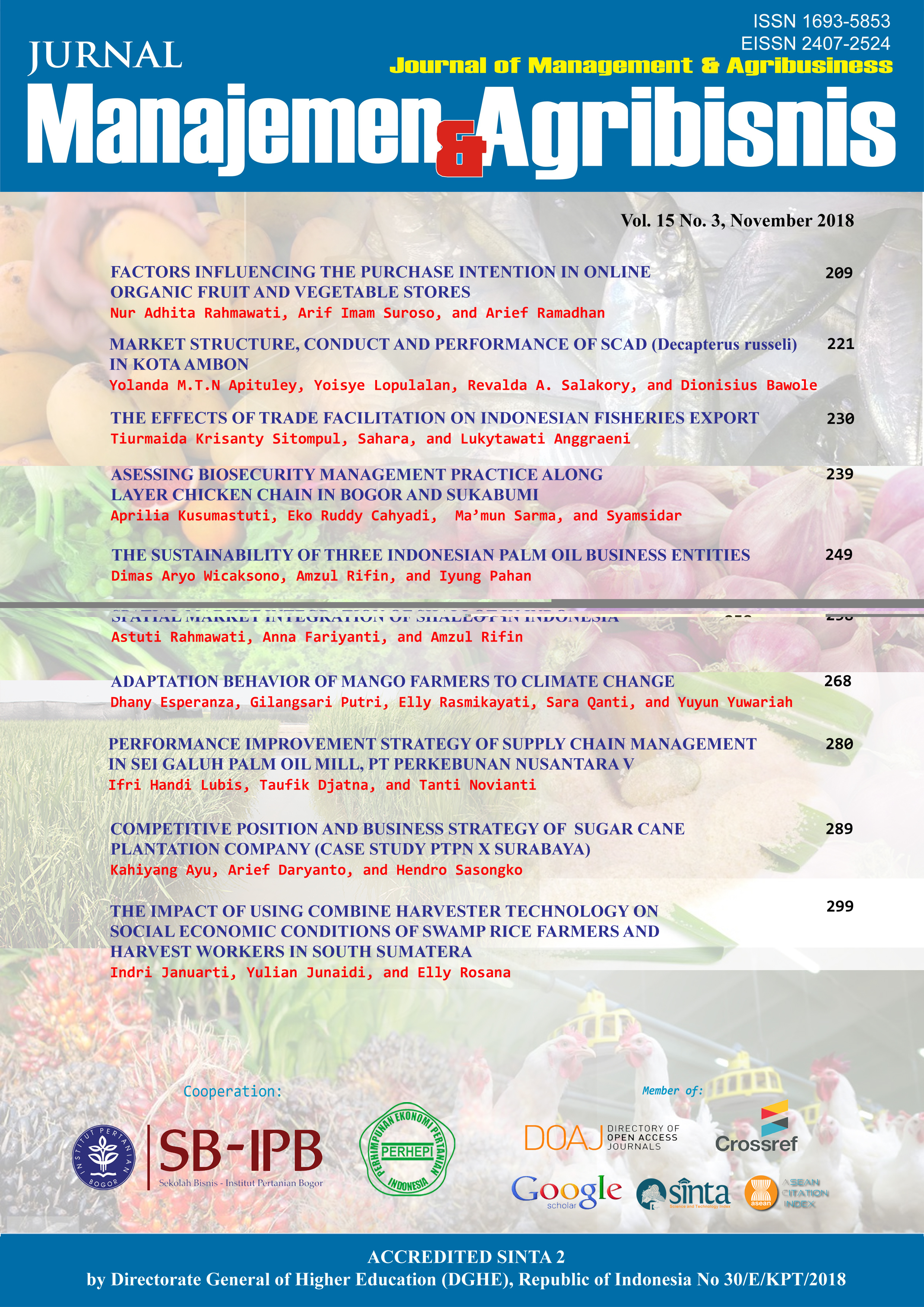The Sustainability of Three Indonesian Palm Oil Business Entities
Abstract
The demand of palm oil products from export destination countries is still recorded to have a high growth. The prospect of world vegetable oil consumption need especially for palm oil that keeps rising gives an opportunity for Indonesia to increase its palm oil production. This research was conducted to observe how far oil palm plantation companies have conducted ISPO through Business Sustainability Typology perspective. This research made use of descriptive quantitative method. The data processing and analysis technique used in this research was descriptive quantitative analysis through Analytical Network Process (ANP) approach by using Super Decisions 2.2 software. Based on the processing result, the three companies were close to Sustainability version 3.0 but have not been perfect. Based on the average calculation of the three companies, the first priority composition from these companies is profit aspect consisting of permit and management system, implementations of oil palm processing guidelines and cultivation guidelines. In addition, it is the people aspect comprising responsibility to workers, community development, and social and community responsibility, and lastly the planet aspect of environmental management and monitoring. Managerial implications include developing and generating renewable energy by processing palm liquid waste (POME) to produce biogas as energy. They also include encouraging and supporting communities in various areas of development and utilization with a sustainable economy and holding a pollution tax that is included as a licensing fee, establishing standards for processing waste and subsidies related to business development
Keywords: business sustainability typology, palm oil, ANP, sustainability, oil palm plantation companies
Authors
Authors who publish with this journal agree to the following terms:
- Authors retain copyright and grant the journal right of first publication with the work simultaneously licensed under a Creative Commons Attribution License that allows others to share the work with an acknowledgement of the work's authorship and initial publication in this journal.
- Authors are able to enter into separate, additional contractual arrangements for the non-exclusive distribution of the journal's published version of the work (e.g., post it to an institutional repository or publish it in a book), with an acknowledgement of its initial publication in this journal.
- Authors are permitted and encouraged to post their work online (e.g., in institutional repositories or on their website) prior to and during the submission process, as it can lead to productive exchanges, as well as earlier and greater citation of published work (See The Effect of Open Access).

